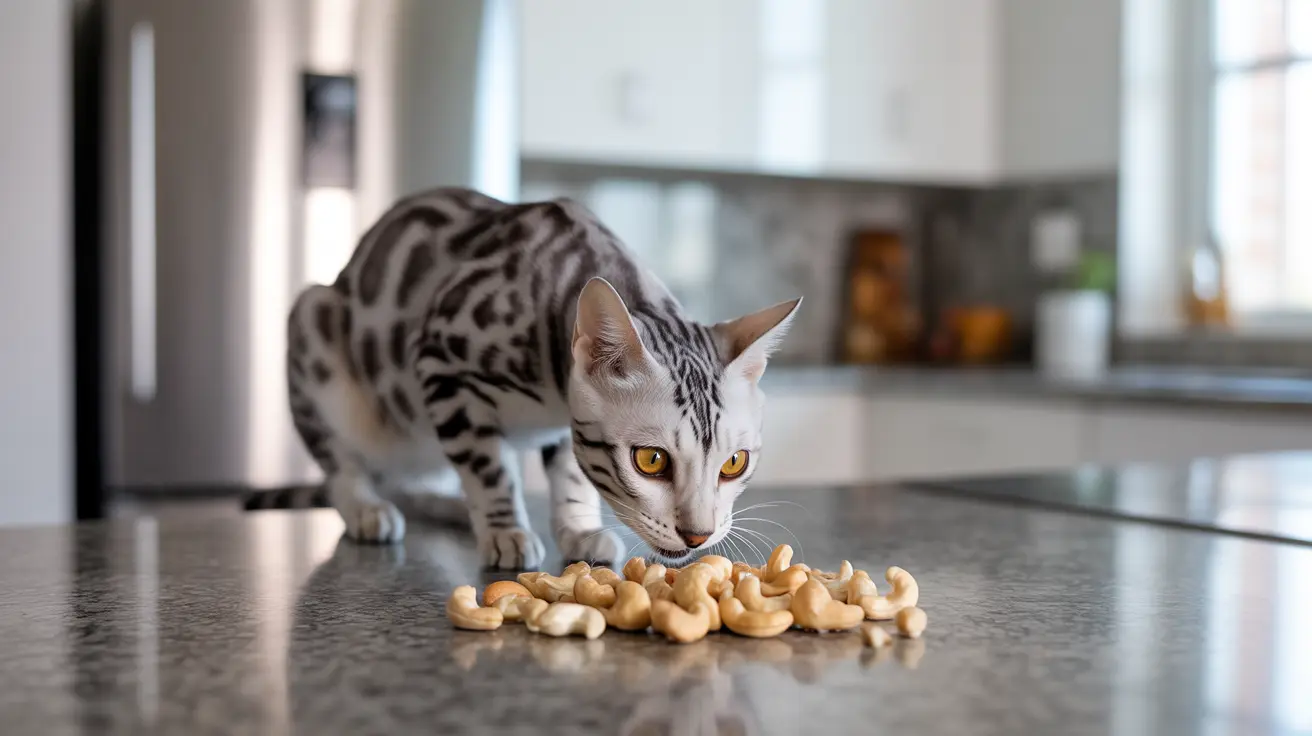If you've ever wondered whether it's safe to share cashews with your feline friend, you're not alone. As cat owners become more conscious about their pets' diets, questions about human foods like cashews frequently arise. While cashews aren't toxic to cats, the relationship between these nuts and feline health is more complex than a simple yes or no answer.
In this comprehensive guide, we'll explore everything you need to know about cats and cashews, including safety considerations, potential risks, and what veterinary experts recommend.
Understanding Cats' Nutritional Needs
Cats are obligate carnivores, which means their bodies are specifically designed to process and utilize nutrients from animal-based proteins. Unlike humans, cats don't have a biological requirement for plant-based foods like nuts, and their digestive systems aren't optimized to process them effectively.
The Truth About Cashews and Cats
While cashews aren't poisonous to cats, they're far from an ideal treat. These nuts are high in fats and calories, with approximately 13 grams of fat and 160 calories per ounce. For a cat's small body size and specific nutritional needs, these numbers are significant and potentially problematic.
Potential Benefits vs. Risks
Cashews do contain some nutrients that are beneficial in general, such as protein, vitamins, and minerals. However, cats are better suited to obtain these nutrients from animal-based sources. The risks of feeding cashews to cats often outweigh any potential benefits:
- High fat content can lead to obesity
- Risk of pancreatitis from excessive fat intake
- Possible digestive upset
- Choking hazards
- Potential allergic reactions
Safe Feeding Guidelines
If you decide to give your cat cashews, follow these essential guidelines:
- Only offer plain, unsalted cashews
- Break them into very small pieces
- Limit to a tiny portion (less than 1/4 of a cashew)
- Monitor your cat for any adverse reactions
- Make it an occasional treat only
Better Alternatives to Cashews
Instead of cashews, consider these safer treat options for your cat:
- Commercial cat treats formulated for feline nutrition
- Small pieces of cooked lean meat
- Veterinary-approved cat snacks
- Freeze-dried meat treats
When to Contact Your Veterinarian
If your cat has consumed cashews and shows any of these symptoms, contact your veterinarian immediately:
- Vomiting or diarrhea
- Lethargy
- Loss of appetite
- Abdominal pain or distention
- Difficulty breathing
- Unusual behavior
Frequently Asked Questions
Can cats safely eat cashews, and how much is considered okay?
Cats can technically eat cashews in very small amounts (less than 1/4 of a cashew), but they should only be given occasionally as a treat. It's crucial that the cashews are plain, unsalted, and broken into tiny pieces.
What health risks can cashews pose to cats if they eat too many?
Excessive cashew consumption can lead to obesity, pancreatitis, digestive issues, and potential allergic reactions. The high fat content is particularly concerning and can cause serious health complications.
Why are cashews not recommended as a regular part of a cat's diet?
Cats are obligate carnivores who require animal-based proteins and nutrients. Cashews provide no essential nutritional benefits for cats and can potentially cause health problems if consumed regularly.
How can I tell if my cat is allergic to cashews or has an adverse reaction?
Watch for symptoms such as vomiting, diarrhea, lethargy, difficulty breathing, or skin irritations. If you notice any of these signs after your cat eats cashews, contact your veterinarian immediately.
What precautions should I take if I want to give my cat cashews as an occasional treat?
Always use plain, unsalted cashews, break them into very small pieces, and monitor your cat for any adverse reactions. Start with a tiny amount and discontinue if you notice any negative effects.
Conclusion
While cashews aren't toxic to cats, they're not a recommended treat option. The potential risks and lack of nutritional benefits make them an unnecessary addition to your cat's diet. Instead, focus on providing your feline friend with specially formulated cat treats or veterinary-approved alternatives that better suit their carnivorous nature.






